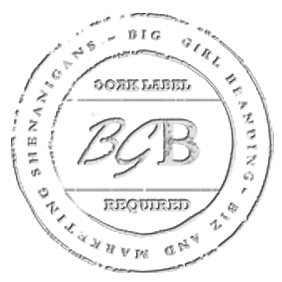This is a guest post courtesy of Carrie with handy tips around appropriate insurance for some of the most common home-based business ventures.
The right coverage is important because you really just never know what can happen, know what I mean?
And I speak from experience when I say it’s extremely stressful to find yourself in a position where you weren’t adequately covered for something, and it costs you. Don’t leave yourself unprotected.
There are two key things you should know about home-based businesses and insurance.
Don’t depend on a standard home insurance policy to cover the venture, even though it’s based in your home. And one size doesn’t fit all.
Everything depends on the type of business, its scale, and your comfort level with the risks inherent in your enterprise.
According to the Independent Insurance Agents & Brokers of America, about 60% of home-based businesses don’t have enough business coverage.
The following are five common home businesses and factors that should be top of mind when you consider purchasing business insurance.
Daycare
This is one of the most common home businesses, especially for stay-at-home parents. It sounds like an easy gig – you’re already taking care of your own child so adding another (or others) shouldn’t be such a big deal, right?
Wrong.
The liability coverage in your homeowners or renters policy applies only to people who visit your home – not your daycare.
It won’t help if one of the children in your care falls and injures himself or herself and the parents decide to sue. Think you can get past that by having parents sign a waiver releasing you from liability?
The National Network for Child Care says those waivers won’t protect you in court.
That means you’ll at least need extra liability and accident-medical insurance for the daycare. If you pick children up at school or take them anywhere, you could need transportation coverage, too.
Freelance Writer/Editor
OK, most of the problems discussed for daycare comes from having people in your home.
As a freelance writer/editor, you won’t face that problem – especially if you don’t interview people on the premises or meet with clients at your house.
Unfortunately, that doesn’t mean you’re home-free. Home insurance will offer limited protection for your equipment, but the limits aren’t huge.
If you have a home office with desktops, a laptop or two, a tablet, a printer, a voice recorder, and other tech equipment, you’ve probably exceeded the limits, which means you’ll be on your own if they’re stolen or damaged in a fire or another disaster.
You’ll need business contents insurance.
You’ll also need professional liability insurance, sometimes called errors & omissions coverage. One is if a client isn’t satisfied with your work, whether you left something out accidentally or made an error in the article you were writing or editing.
You also could need media insurance to cover you against defamation and libel suits, even if you don’t plan to write controversial material.
Even winning such suits could cost you plenty if you have to go it alone.
Event Planning
First off, there’s that business property thing – if you own tents, chairs, and other equipment for outdoor events, you need to insure them against loss.
And again, you’ll need liability insurance, in case someone gets hurt at your event. Many venues require that you have this before booking them.
Errors & omissions coverage also is likely a must in case some customers are dissatisfied with your services. If you’re serving alcohol, you’ll want liquor liability coverage.
Another thing: Once the business starts thriving, you might need to hire help. If you do, you could be required to purchase workers compensation coverage.
Jewelry Making
There definitely are insurance issues that must be addressed with a venture like this.
Most jewelry makers follow one of two paths: either they make items from scratch or they refurbish or repurpose existing jewelry – maybe turning a family ring into a broach.
In either case, you likely will have clients in your home, so liability insurance is a must. You also have to keep your inventory covered from theft or damage, so business property insurance likely is also a necessity.
This is especially true if you’re repurposing items left with you.
Tax Preparer/Accountant
Not everyone can fill these roles, of course.
But if you have the expertise, this can be a great sideline. Obviously, you’ll need malpractice insurance in case you give a client bad advice.
You’ll also need the other standard coverages; business property for your equipment and liability coverage in case a client is injured while visiting you.
There are plenty of other home businesses that you could opt to start. But these five examples show you the types of exposure you could face from a variety of enterprises so that you have a good baseline of what you may or may not need to consider.
The takeaway from all this is that you should make a point to have a discussion with a licensed, independent agent about your home business.
Yes, he or she will want to sell you insurance.
But your agent also can explain fully the risks you face and your options for dealing with them. In many cases, you can bundle coverages and save on premiums.
Remember- it isn’t just your home business that’s at stake. Your personal finances – and those of your family – can also be on the line.
Over to You
What sort of coverage do you have in place for your home based business? What have you opted away from and why? Feel free to share in the comments below.

